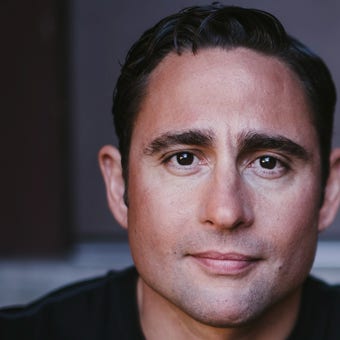In 2010, I returned home from the Korengal Valley in Afghanistan. Seven days of heavy combat there, one of the most dangerous places on Earth, changed my life.
After 10 years of service, multiple deployments, and numerous conflicts and explosions, I was suffering from a traumatic brain injury and post-traumatic stress. I was in a dark place and on the verge of losing my marriage and career.
Just as I did when I came home 10 years ago, America desperately needs healing today. In my journey of faith, I discovered a surprising way to become whole again. It won’t end the coronavirus pandemic or bridge our racial divide by itself, but it does offer personal healing.
Combat leaves scars, and not all of them are physical. Even when you don’t come home wounded or, worse, in a body bag, war changes you.
I had deployed to Iraq and Afghanistan multiple times, but my most harrowing experience by far came when my unit came under siege in the Korengal Valley – known as "The Valley of Death" because so many Americans lost their lives there. We were actually there to shut down a U.S. base, but then the enemy started to emerge from the valley in wave after wave. For 72 hours straight, we fought for our lives.
More from Opinion
The ordeal changed me. I came home not only wounded, but also confused and agitated. I was in pain — not just physical and emotional pain, but also spiritual pain. All my problems were catching up with me. I was dealing with — or, more accurately, trying not to deal with — the aftermath of war, as well as the lingering scars of growing up in poverty with an abusive father.
I wasn’t handling any of it well. My sleep was troubled. My anxiety and stress levels were through the roof, and I experienced several flashbacks. I drank heavily to numb the pain, I fought with my wife and I jeopardized my military career. The things that mattered most to me seemed to be slipping through my fingers.
Despite all of my accomplishments, I was very insecure. I rose up the ranks in the military, but I still had low self-esteem. I was tired of trying to prove myself. It wasn’t making me happy and didn’t seem worth it. Nothing seemed worth it. I started to question my will to live.
Inspired by how my doctor helped me, I started to wonder: What would my life look like if it were about helping other people rather than just myself?
But I did find healing.
After returning from Afghanistan, I saw a lot of medical specialists, including a doctor who would eventually join me in the mission field. He helped me through that healing process, not just the physical healing, but the mental and spiritual healing as well.
While re-evaluating my life, I realized that I was too self-focused. My whole life was shaped by a relentless need to prove myself. I was always focused on the next rank, the next medal, more recognition, more validation, more, more, more. But no achievement was ever enough. It was all for me, and none of it brought me lasting peace.
CLICK HERE TO SIGN UP FOR OUR OPINION NEWSLETTER
Inspired by how my doctor helped me, I started to wonder: What would my life look like if it were about helping other people rather than just myself?
I decided to turn my passion and drive outward and work for others for a change. In doing so, I found personal healing.
Several years later, after multiple humanitarian missions, I was no longer asking myself whether life was worth living. On the contrary, I was thankful to be alive.
CLICK HERE TO GET THE FOX NEWS APP
Helping others felt good and worthwhile, and I wanted to do it more. I also wanted to bring the message of hope, which saved me, to others. I wanted to empower people and help them heal.
I changed from broken and suicidal to a life of fulfillment and purpose. So can you.









































